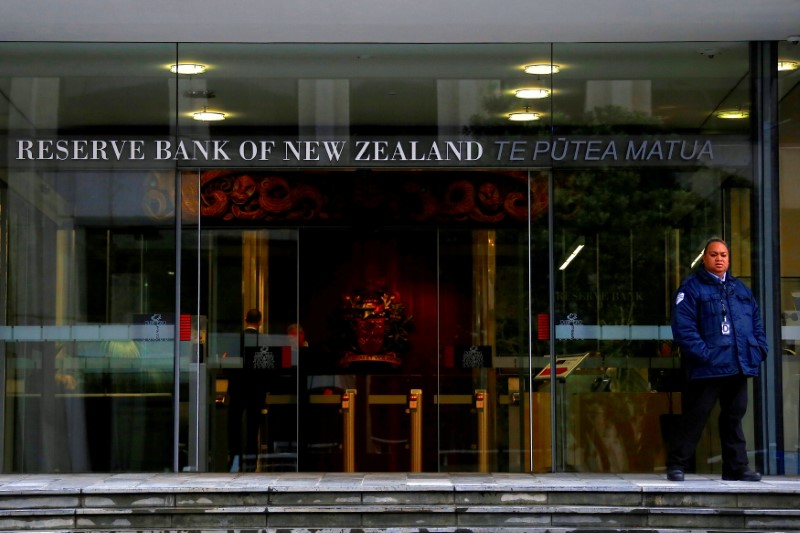* Employment goal already adopted on a shorter-term basis
* Bill's passage would mean a more permanent change for c.bank
* Acting PM calls the bill 'a happy compromise' for RBNZ change (Adds acting prime minister's quote, background)
By Charlotte Greenfield
WELLINGTON, July 23 (Reuters) - New Zealand Acting Prime Minister Winston Peters said on Monday a bill has been introduced to Parliament to formally add employment to the central bank's monetary policy mandate, alongside inflation targeting.
A greater focus on employment has already been adopted on a temporary basis by the Reserve Bank of New Zealand (RBNZ) governor. But the proposed law - likely to be passed - would make a more permanent shift for the central bank, which in 1989 was the world's first to adopt an official inflation target.
This bill makes "very important changes to the Reserve Bank Act that will significantly improve monetary policy as it relates to its impact on New Zealanders and the real economy," Peters told reporters at Parliament.
The legislation had been flagged by the Labour-led coalition government that came into power in October and promised to promote job creation.
The bill would also introduce a committee to set monetary policy rather than leave the decision solely to the central bank's governor.
In March, when Adrian Orr became RBNZ chief, he and Finance Minister Grant Robertson agreed that maximising sustainable employment would be a goal alongside inflation targeting, in a policy agreement covering the governor's five-year term. say the ramped-up focus on employment is unlikely to change the bias of near-term monetary policy. The RBNZ is widely expected to keep interest rates at a record low 1.75 percent until well into 2019 as it tries to boost tepid inflation. < NZINTR=ECI
New Zealand unemployment rate is already at nine-year lows, at 4.4 percent. the leader of the nationalist New Zealand First Party that struck a coalition deal with centre-left Labour, said he had eased back from his position during last year's election campaign for a more radical shake-up of the RBNZ.
He had even touted a Singapore-style system where a currency target path replaces official interest rates and the central bank intervenes to manage currency swings.
On Monday, he said the newly-introduced bill was "a happy compromise... at least it's a start in the right direction."
